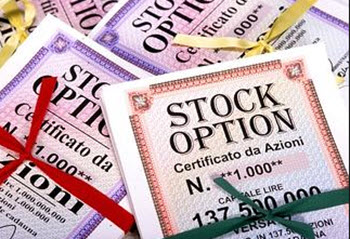- A call stock option gives its holder a right, but not an obligation, to buy the underlying stock for a certain price (the strike price*) during a certain period of time.
- A put stock option gives its holder a right, but not an obligation, to sell the underlying stock for a certain price (the strike price*) during a certain period of time.
* Also known as the exercise price.
Please note that stock options and binary options are two very different things even though both can be stock-based. Binary options work very differently from what I describe below. You can read more about binary options here (our guide) and here (in-depth binary options website).
What’s the difference between a European-style stock option and an American-style stock option?
- A European-style stock option can only be exercised on its expiration date. This means that you can only use it to purchase (call option) or sell (put option) the underlying stock on the expiration date.
- An American-style stock option can be exercised on any day until it has expired. This means that you can only use it to purchase (call option) or sell (put option) the underlying stock on any day until the option has expired.
A stock option that is not European-style nor American-style is called exotic. You need to look into the option’s term sheet to find out the exact terms for exercising an exotic stock option.
Where can I buy a stock option?
Stock options are traded-over-the counter (OTC) and on exchanges.
Employee stock options that can only be exercised by the original holder are, of course, not traded.
An exchange will typically only allow the trade of highly standardized contracts, and trade is typically carried out through a clearinghouse which means that the seller and the buyer doesn’t necessarily know each others identity. The exchange will set rules for the stock option and its trade and enforce those rules. Most exchanges will automatically step in and honor a listed stock option in case the writer (creator of the stock option) is unwilling or unable to do so.
Trading stock options outside an exchange means that you don’t get type of protection offered by an exchange. On the other hand, certain stock options are not listed with any exchange so over-the-counter (OTC) trading is you only option. OTC-traded stock options aren’t necessarily standardized, so inspecting the term sheet becomes even more important. It is also up to you to determine if you think the writer (creator of the stock option) will honor it, because no one will step in and honor the stock option if the writer shirks.
Examples of important details to check out in the term sheet:
- Is this option European-style, American-style or Exotic?
- Is the writer allowed to refrain from actually selling/buying the underlying stock by giving your money instead?
- A company can issue various types of stock, e.g. A stock and B stock. Which type is this stock option for?
This article was last updated on: March 22, 2022